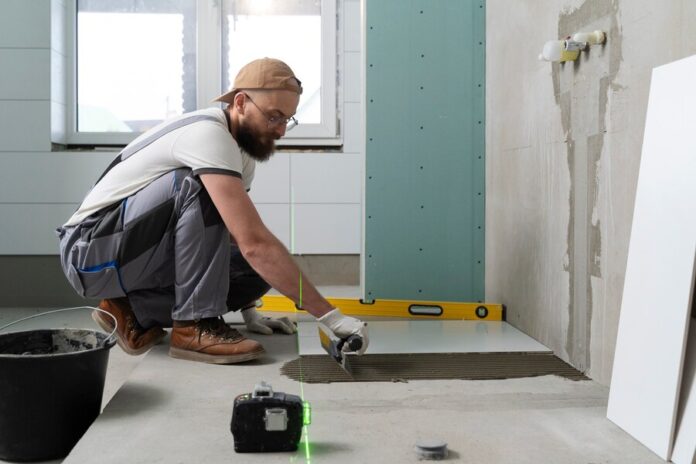Introduction
Renovating your bathroom is exciting, but finding the right contractor can be challenging. Here are ten tips to help you choose the perfect bathroom renovation contractor for your home.
Define Your Needs and Budget
Before looking for a contractor, determine what you want to achieve with your bathroom renovation and set a realistic budget. Knowing your needs and financial limits will help you narrow down your options.
Research Potential Contractors
Take the time to research potential contractors in your area. Look for companies with a good reputation, years of experience, and positive customer reviews. Ask friends, family, and neighbours for recommendations.
Check Credentials and Licensing
Ensure that the contractors you’re considering are properly licensed and insured. This will protect you from liability in case of accidents or damage during the renovation process.
Review Portfolios and Past Work
Ask potential contractors to provide portfolios of past work or examples of completed bathroom renovations. This will give you an idea of their style, craftsmanship, and attention to detail.
Get Multiple Quotes
Don’t settle for the first contractor you find. Instead, get multiple quotes from different companies to compare prices, services, and timelines. Be wary of quotes that are significantly lower than the others, as they may indicate low-quality artistry or hidden costs.
Ask About Guarantees and Warranties
Inquire about the warranties and guarantees offered by each contractor. A reputable contractor should stand behind their work and offer warranties on materials and labour.
Communicate Your Expectations
Communicate your expectations to the contractor before signing any contracts. Ensure they understand your vision for the renovation and are willing to work with you to achieve it.
Check References
Ask potential contractors for references from past clients and take the time to follow up with them. Talking to previous customers will give insight into the contractor’s reliability, professionalism, and overall satisfaction with the finished project.
Read the Contract Carefully
Before agreeing to any work, carefully read through the contract provided by the contractor and pay attention to details such as payment schedules, project timelines, and responsibilities of both parties.
Trust Your Instincts
Ultimately, trust your instincts when choosing a bathroom renovation contractor. Looking elsewhere is okay if something doesn’t feel right or you’re uncomfortable with the contractor. Your peace of mind is worth it.
Conclusion
Choosing the proper bathroom renovation contractor is crucial to the success of your project. By following these ten tips and doing your due diligence, you can find a contractor who will bring your vision to life and deliver a beautiful, functional bathroom that you’ll love for years.
FAQs
How long does a bathroom renovation typically take?
The duration of a bathroom renovation depends on various factors, including the project size, the scope of work, and the contractor’s availability. A standard bathroom renovation can take two to six weeks to complete.
Should I hire a general contractor or a specialist for my bathroom renovation?
It depends on the complexity of your project. If your renovation involves multiple trades, such as plumbing, electrical, and tiling, hiring a general contractor who can oversee all aspects of the project may be beneficial. However, hiring a specialist, such as a plumber or tiler, may suffice if your renovation is relatively straightforward.
How much does a bathroom renovation cost?
The cost of a bathroom renovation varies widely depending on factors such as the size of the bathroom, the extent of the renovation, and the quality of materials used. On average, homeowners can expect to spend anywhere from £5,000 to £15,000 for a standard bathroom renovation.
Do I need to obtain permits for my bathroom renovation?
In most cases, minor bathroom renovations, such as replacing fixtures or tiles, may not require permits. However, significant renovations that involve structural changes, such as moving plumbing or walls, may require permits from your local building authority. It’s essential to check with your contractor and local authorities to ensure compliance with regulations.
How can I minimize disruption during the renovation process?
Consider setting up a temporary bathroom elsewhere in your home to minimize disruption during your bathroom renovation. Communicate with your contractor about your daily routines and preferences to plan the work schedule accordingly. Additionally, consider sealing the renovation area with plastic sheeting to contain dust and debris.
-
You’ll also like this.
Must visit the home page:




